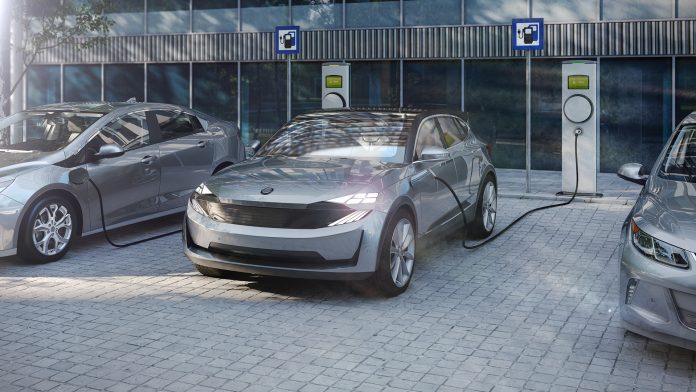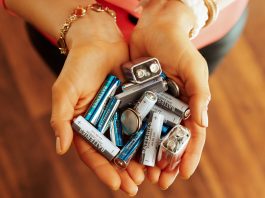The United States Department of Energy has announced $45m in funding to facilitate the development of advanced batteries for electric vehicles. It is hoped that this funding will enable advanced batteries that charge faster, have greater efficiency and resilience and boost consumer confidence against range anxiety.
On 3 May 2022, the U.S. Department of Energy (DOE) declared up to $45m in funding to help the domestic development of advanced batteries for electric vehicles. Through DOE’s Advanced Research Projects Agency-Energy (ARPA-E), the department is introducing the Electric Vehicles for American Low-Carbon Living (EVs4ALL) programme. It is hoped that this will enable the development of cheaper, more convenient, effective, and durable batteries.
Ensuring the electrification of the transportation sector
President Biden is ensuring that the just electrification of the transportation sector is a primary consideration during his time in office. Biden has incorporated provisions within his Bipartisan Infrastructure Law that underpin the objective of having electric vehicles make up 50% of all vehicle sales in the United States in 2030.
“Advanced batteries are the heartbeat of the electric vehicle industry and investments to make them charge faster and last longer will be critical to accelerate the deployment of electric cars and trucks,” said U.S. Secretary of Energy, Jennifer M. Granholm. “The benefits of an electrified transportation sector in America will be felt for generations to come — from directly combatting climate change to growing domestic manufacturing jobs and strengthening our overall energy independence.”
Addressing market concerns
The ARPA-E EVs4ALL funding opportunity seeks to overcome the widespread market concerns and significantly enhance domestic electric vehicle implementation by eradicating key detractors for consumers.
Faster charging
While installing charging infrastructure at home is the favoured option for many electric vehicle drivers, many people live in residences that are not equipped with the facilities needed to house a charging port, such as garages or carports. In order to appeal to people without these facilities, advanced batteries capable of safe, rapid is charging essential. This will reduce the amount of time drivers spend at charging stations to as little as five minutes, while guaranteeing improved costs savings during each charge.
Increasing efficiency
Existing electric vehicle batteries lose performance when temperatures drop below freezing. As many people live in areas with temperatures that regularly reach freezing, it is imperative to develop more efficient batteries that can withstand colder temperatures.
Improving resilience
Tackling range anxiety amongst prospective electric vehicle owners is crucial to consumer buy-in and their overall comfort level of operating their vehicle for long-distance traveling. Battery resilience is essential for range retention to enable electric vehicles to travel longer distances between charges and have better total life mileage.
Further battery funding
On top of announcing the EVs4ALL programme, the DEO also revealed $3.1bn in funding to enhance the manufacture of advanced batteries. This funding is essential to facilitating the development of novel commercial facilities that produce battery materials, cell components, and batteries, as well as developing battery recycling facilities.
Furthermore, DOE has revealed $60m in funding to support second-life applications for batteries once used to power electric vehicles and novel methods for recycling materials back into the battery supply chain.
Both funding opportunities have been authorised by President Biden’s Bipartisan Infrastructure Law and are intended to reinforce the US’s domestic battery supply chain. As well as this, it is hoped to stimulate the establishment of clean energy jobs, and support Biden’s aim to have electric vehicles make up half of all vehicle sales in the US by 2030.









